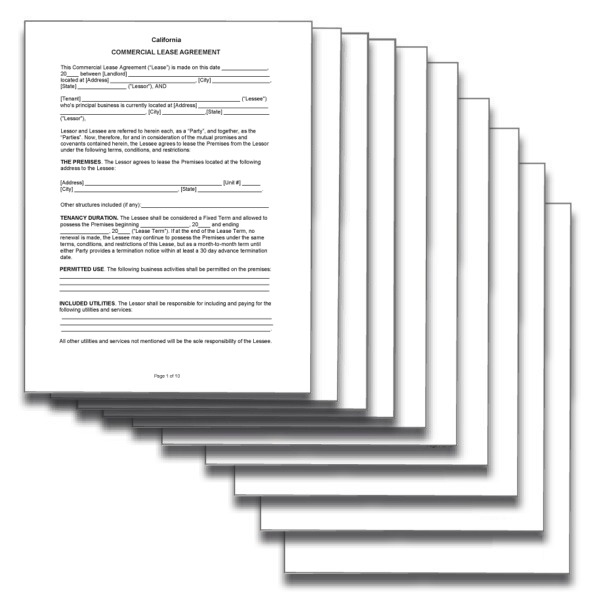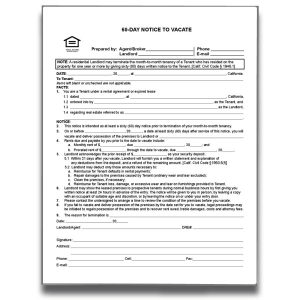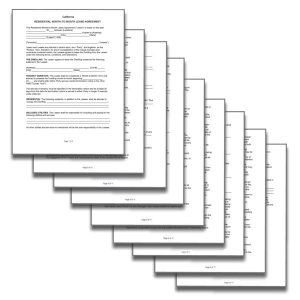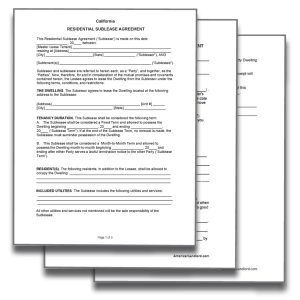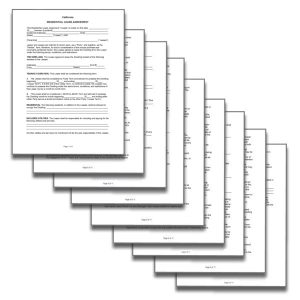This California Commercial Lease Agreement is versatile contract that may be used used for a variety business types and real estate buildings such as executive centers, storefronts, industrial complexes, and professional buildings. Within this 10 page contract, the landlord may choose how the expenses are to be calculated based on one of the three common industry options:
California Expense Options
Gross – The Tenant is not obligated to pay any additional expenses, which include utilities, real estate taxes, insurance (other than on the Tenant’s personal property), charges, or expenses of any nature whatsoever in connection with the ownership and operation of the Premises.
Modified Gross – In addition to the rent, the Tenant shall be responsible for the specific additional expenses that are agreed upon and itemized in the lease.
Triple Net (NNN) – In addition to the rent, the Tenant agrees to pay for their share of the operating expenses of the entire building (as well as the taxes and insurance). This is typically calculated by determining the Tenant’s percentage of the total building area square footage.
California Commercial Landlord Disclosures
The following disclosures are required to be implemented by commercial landlords in California if any of the following circumstances apply:
Arbitration (§ 7191) – If a landlord attaches a separate addendum to this agreement which includes an arbitration provision, California law requires the following statement to be added in 8-point roman boldface type and capitalized and provide for a space for the tenant to acknowledge/initial it:
“NOTICE: BY INITIALING IN THE SPACE BELOW YOU ARE AGREEING TO HAVE ANY DISPUTE ARISING OUT OF THE MATTERS INCLUDED IN THE ‘ARBITRATION OF DISPUTES’ PROVISION DECIDED BY NEUTRAL ARBITRATION AS PROVIDED BY CALIFORNIA LAW AND YOU ARE GIVING UP ANY RIGHTS YOU MIGHT POSSESS TO HAVE THE DISPUTE LITIGATED IN A COURT OR JURY TRIAL. BY INITIALING IN THE SPACE BELOW YOU ARE GIVING UP YOUR JUDICIAL RIGHTS TO DISCOVERY AND APPEAL, UNLESS THOSE RIGHTS ARE SPECIFICALLY INCLUDED IN THE ‘ARBITRATION OF DISPUTES’ PROVISION. IF YOU REFUSE TO SUBMIT TO ARBITRATION AFTER AGREEING TO THIS PROVISION, YOU MAY BE COMPELLED TO ARBITRATE UNDER THE AUTHORITY OF THE BUSINESS AND PROFESSIONS CODE OR OTHER APPLICABLE LAWS. YOUR AGREEMENT TO THIS ARBITRATION PROVISION IS VOLUNTARY.” “WE HAVE READ AND UNDERSTAND THE FOREGOING AND AGREE TO SUBMIT DISPUTES ARISING OUT OF THE MATTERS INCLUDED IN THE ‘ARBITRATION OF DISPUTES’ PROVISION TO NEUTRAL ARBITRATION.”
CASp Report (§ 55.53) – Certified Access Specialist (CASp) Reports must be provided to a new tenant. If the landlord has never had a CASp Report inspection, the following statement must be added to the lease agreement:
“A Certified Access Specialist (CASp) can inspect the subject premises and determine whether the subject premises comply with all of the applicable construction-related accessibility standards under state law. Although state law does not require a CASp inspection of the subject premises, the commercial property owner or lessor may not prohibit the lessee or tenant from obtaining a CASp inspection of the subject premises for the occupancy or potential occupancy of the lessee or tenant, if requested by the lessee or tenant. The parties shall mutually agree on the arrangements for the time and manner of the CASp inspection, the payment of the fee for the CASp inspection, and the cost of making any repairs necessary to correct violations of construction-related accessibility standards within the premises.”
Repairs (Section 1938) – A landlord is held responsible for maintaining a commercial property including any repairs that are necessary to correct violations with construction-related accessibility standards in the CASp Report unless the landlord and tenant come to a separate agreement.
Please read our Terms of Use. AmericanLandlord.com is not a substitute for consulting with a legal professional specializing in landlord-tenant law.
